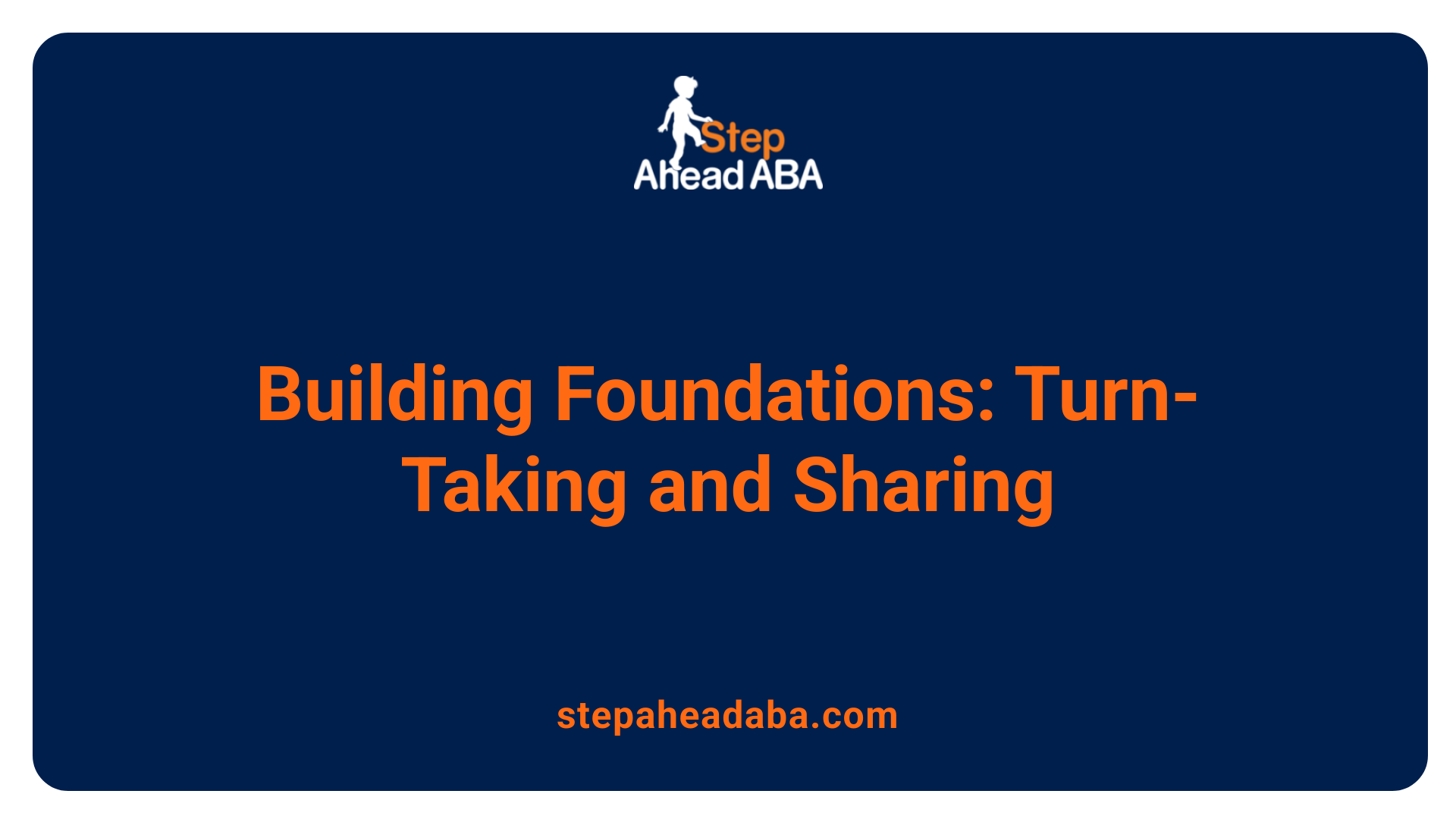
Previous post

Social interaction is fundamental to human development, yet children with autism often face challenges in engaging effectively with others. ABA therapy offers a structured, evidence-based approach to teaching vital social skills such as turn-taking and sharing. This article explores the developmental and educational benefits of these skills, the strategies used within ABA frameworks, and the importance of caregiver and professional training to maximize social outcomes.

Teaching social skills such as turn-taking and sharing plays a vital role in promoting overall social interaction and communication skills in children with autism. These skills are foundational to participating effectively in social exchanges, enabling children to engage in meaningful conversations, play cooperatively, and build connections with others. Research, including a comprehensive 2021 study, shows that social skills training (SST) can result in significant improvements in social reciprocity — the ability to respond and initiate social interactions appropriately. Structured interventions involving social stories, modeling, and self-modeling techniques help children grasp complex social cues and enhance their understanding of social norms. Developing these skills leads to increased social engagement, happiness, and the ability to form lasting peer relationships. Because turn-taking and sharing are essential components of many social activities, mastering them is critical for children to navigate social environments confidently and effectively.

ABA therapy integrates a range of evidence-based methods to teach social skills like turn-taking and sharing. Interior strategies such as behavioral skills training (BST) involve explaining the importance of these behaviors, demonstrating them through modeling, allowing practice through role-playing, and providing immediate feedback.
Visual supports play a vital role—tools like picture cards, timers, and social stories make abstract concepts easier for children to grasp. For example, a visual timer can help children understand how long they need to wait for their turn or share.
Reinforcement strategies are used to motivate children. Positive reinforcement, such as praise, tokens, or access to preferred activities, encourages children to practice and repeat social behaviors.
Natural environment training (NET) involves practicing these skills in real-life settings, such as during play or mealtime, making learning more functional and meaningful. This method helps children transfer skills learned in therapy to everyday situations.
Another effective tool is video modeling, where children watch videos of peers or adults demonstrating turn-taking and sharing. This visual modeling provides clear examples for imitation and understanding.
By combining these approaches, therapists create a supportive and engaging framework that systematically builds social skills, ensuring children not only learn but also generalize these skills across different contexts.

Incorporating turn-taking and sharing activities into ABA therapy plays a vital role in helping children develop essential social skills within a safe, structured environment. These activities serve as practical opportunities for children to practice behaviors like waiting patiently, sharing resources, and engaging in reciprocal interactions.
Therapists often reinforce these skills using positive reinforcement methods—such as praise, tokens, or access to preferred activities—to motivate children to repeat these behaviors. Group-based sessions and the use of social stories allow children to apply their skills in real-world contexts, supporting generalization across different settings.
A variety of strategies like role-playing, modeling, and video demonstrations assist children in understanding subtle social cues and effective communication. These techniques help children recognize non-verbal signals and learn how to respond appropriately during social exchanges.
By embedding turn-taking and sharing into therapy, children improve their social competence. This progress is crucial for forming meaningful relationships, participating confidently in community activities, and gaining independence, emotional regulation, and overall well-being.

The evidence backing the success of teaching turn-taking and sharing through ABA therapy is both extensive and well-established. Numerous research studies have demonstrated that targeted social skills training, including these foundational behaviors, markedly improves children’s capacity for social interaction.
ABA (Applied Behavior Analysis) employs structured teaching methods such as discrete trial training, social skills groups, role-playing, and video modeling to systematically teach turn-taking and sharing. These methods rely on breaking down complex social behaviors into manageable steps, making it easier for children to learn and generalize skills across different settings.
Reinforcement strategies play a vital role in ABA. Children receive positive praise, tokens, or access to preferred activities when demonstrating successful turn-taking or sharing, which encourages repetition and mastery.
Research has also examined specific social skills training programs like UCLA PEERS® and Social Skills Training (SST). These programs have shown significant improvements in peer interactions, willingness to participate in group activities, and emotional regulation, which are crucial for lifelong social success.
In addition, studies employing natural environment teaching and peer-mediated interventions further confirm the positive impacts of structured ABA strategies. These approaches help children generalize learned skills to real-world social situations, increasing their opportunities for meaningful connections.
Overall, the broad scientific consensus underscores that instructing turn-taking and sharing through evidence-based ABA interventions fosters not only immediate skill acquisition but also long-term social integration and emotional development for children with autism.

Visual supports are essential tools in ABA therapy that help children with autism understand social expectations more clearly. These aids include picture cards, visual schedules, color-coded charts, timers, and social stories. For example, picture cards depicting
Teaching turn-taking and sharing within ABA therapy is essential for promoting social competence in children with autism. These foundational skills not only support immediate social interactions but also underpin long-term abilities to develop friendships, participate effectively in community settings, and lead independent lives. Through evidence-based strategies such as modeling, role-playing, visual supports, and reinforcement, therapists can systematically teach these skills in engaging, personalized ways. When caregivers and professionals are well-trained in these techniques, the impact is amplified, leading to improved social outcomes and a more inclusive environment for children with autism. Ultimately, targeted social skills development enriches children’s emotional well-being, social integration, and lifelong success.